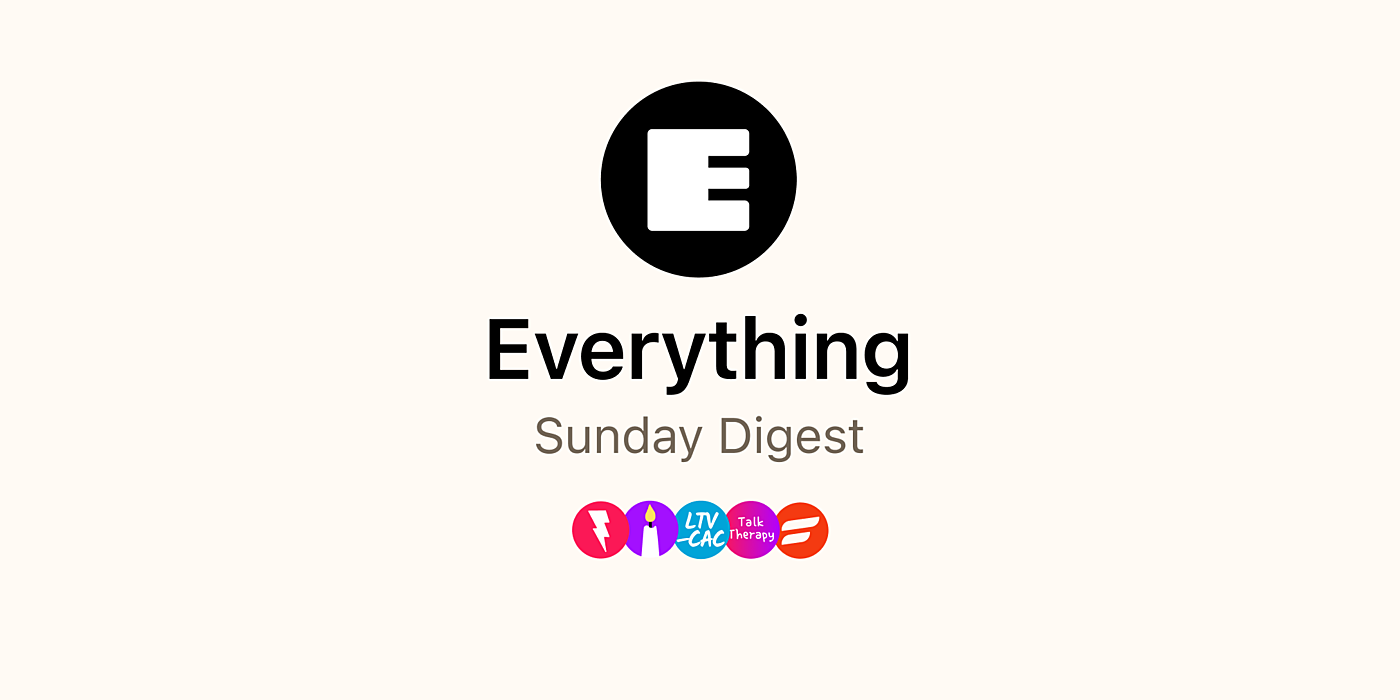
Hello and happy Sunday!
What we published this week
We published three new articles this week totaling ~7,000 words. We discovered the secret behind the success of Costco’s Kirkland Signature brand, and learned Tiago Forte’s six most powerful time-budgeting principles.
How to manage your subscription
You can subscribe and unsubscribe from individual newsletters inside of the bundle without affecting your overall subscription to what we write. If you want to turn on or off email notifications for a specific newsletter, you can manage your settings here.
Enjoy!
PRAXIS
The modern frontier of productivity➰Time Budgeting: What I’ve Learned from Doing 364 Weekly Reviews
Tiago Forte’s Weekly Review is his productivity rock, having helped him weather everything from unemployment to freelancing to entrepreneurship. He has it down to a science at this point, but like most things, he didn’t get there overnight — keep reading to see how he does his weekly review, and what the world of personal finance has taught him about productivity.
NAPKIN MATH
Get smarter about investing📐How Costco Convinces Brands to Cannibalize Themselves
Ever wonder how Costco’s Kirkland Signature brand manages to keep prices low without skimping on quality? Here’s the secret: Kirkland products are made by the same manufacturers as the ones that make the name-brand products. But that’s not all -- Costco also makes sure that they’re at least 1% better in some way. That’s great for the consumer — but what’s in it for the brands? Adam Keesling explains how it all adds up.
DIVINATIONS
Get smarter about strategy🔮 Disrupting Disruption
The most famous idea in strategy might be wrong. At least, that’s what a growing set of thinkers is beginning to suspect. This is the first in a five part series on Disruption Theory, where Nathan explores critiques of disruption from thinkers like Ben Thompson, Alex Danco, and Hamilton Helmer.
🔮Means of Creation #2: Greg Isenberg
Nathan Baschez and Li Jin’s talk show, Passion Economics, is debuting under a new name: Means of Creation. This week’s episode features Greg Isenberg, the founder of a new studio/fund called Late Checkout that builds and invests in internet communities. The trio discussed the unbundling of Reddit into vertical communities, how new social apps get traction, and the lessons Greg learned from his startup, Islands.
Dive deeper — in case you missed it, Nathan and Li also did an episode two weeks ago with Sahil Lavingia, the founder of Gumroad. You can watch that here.
From the Divinations archives — “Trade-offs are your friend.” Tradeoffs are a fact of life, and certainly a fact of business. But when you’re not smart about leveraging tradeoffs in copying another business’ tactics, the results can be disastrous — Nathan recounts the lessons learned by Continental Airlines in their attempt to imitate Southwest Airlines, with an emphasis on just how important a role company culture plays in this game.
SUPERORGANIZERS
How the world’s smartest people organize their work⚡️You have to get good before you get better
We’re resurfacing this post from the Superganizers archives. There are two kinds of goals: process goals and outcome goals. Dan Shipper describes how process goals helped him gain traction with Superorganizers, and how you should think about which types of goals to set for yourself.
TALK THERAPY
What happens when two friends start a business💞 #12 - It's Disruption Week!! (part 1)
In this episode, Dan discusses his forthcoming article, How New Ideas Happen. It applies the theory of disruption and Thomas Kuhn’s theory of paradigm shifts to help us understand where new ideas come from, and what it feels like to have one. Turns out, you may be killing your best ideas prematurely.
💞 #13 - Disruption and its discontents
Dan interviews Nathan about his forthcoming series of Divinations essays that explore critiques of the traditional theory of disruption. In this conversation, we focus on Ben Thompson’s “divine discontent” critique.
FROM OUR NETWORK
📈Trying to Grow Subscriptions With a Hard Paywall
The hard paywall is a bold and risky strategy, but when done right, the payoff can be massive. Jacob Donnelly breaks down The Information’s success as a hard-paywall media business to explain what made it work (the key word here is “experiment”), and the value of using audio as a retention tool.
One last announcement: We're looking for great business writers!
We’re seeking freelance writers to work on two of our existing newsletters, Superorganizers and Divinations. We’re excited about working with journalists, but there are also other experiences that we think successful candidates may have in their toolkit: People who have worked as interpreters, translators, copywriters, speechwriters, technical writers, in edtech, venture capital, startups, finance, etc., are especially encouraged to contact us, as are students pursuing MBA, law, or other professional degrees.
If you’re as enthusiastic as we are about business writing and think you’d be a great addition, we’d love to hear from you — check out the full description and instructions for applying here.
That’s it for this week!
Thanks, and see you next Sunday :)
How did you feel about this post?
This issue was written by Tori Smith and edited by Dan Shipper.
The Only Subscription
You Need to
Stay at the
Edge of AI
The essential toolkit for those shaping the future
"This might be the best value you
can get from an AI subscription."
- Jay S.
Join 100,000+ leaders, builders, and innovators

Email address
Already have an account? Sign in
What is included in a subscription?
Daily insights from AI pioneers + early access to powerful AI tools








Comments
Don't have an account? Sign up!